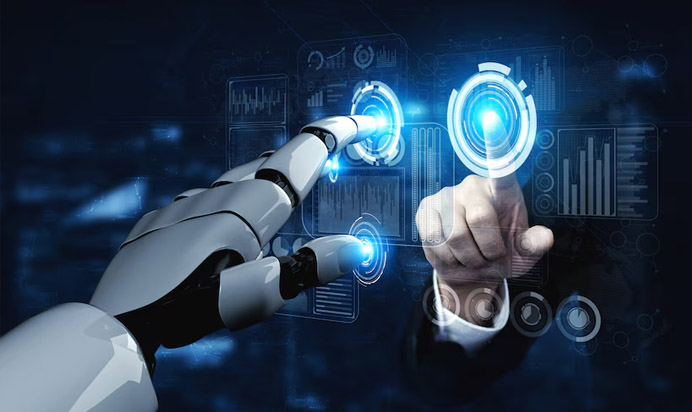Group Discussion
The Role of Artificial Intelligence (AI) in Shaping the Future of Jobs
Artificial Intelligence (AI) is transforming industries across the globe, from healthcare and finance to manufacturing and education. While AI offers numerous benefits, such as increased efficiency and innovation, it also raises concerns about the future of jobs. Automation driven by AI is expected to displace a significant number of jobs, particularly in sectors that rely on routine and manual labor. At the same time, AI is creating new job opportunities in fields like data science, machine learning, and robotics.

Relevance in Present Context
India is at the forefront of the global AI revolution, with its rapidly growing tech industry and large pool of skilled labor. However, the country also faces the challenge of ensuring that its workforce is prepared for the shift toward automation. The impact of AI on jobs is a critical issue for policymakers, educators, and businesses, as they navigate the transition to a future where AI plays a central role in the economy.Questions to Generate Discussion
- How will AI impact job creation and job displacement in India?
- What skills will be required for the jobs of the future in an AI-driven economy?
- How can India’s education system adapt to prepare students for the AI revolution?
- What role can government and businesses play in reskilling the workforce?
- Can AI help reduce inequality by creating opportunities in underserved sectors?
Points for
- Increased Productivity: AI can automate routine tasks, allowing workers to focus on more complex and creative tasks, thereby increasing productivity and innovation.
- Job Creation in Tech Sectors: AI is creating new opportunities in fields like data science, AI ethics, and robotics, which require specialized skills and expertise.
- Improved Decision-Making: AI can assist in data-driven decision-making, leading to better outcomes in industries such as healthcare, agriculture, and finance.
- Reskilling Opportunities: The rise of AI presents an opportunity for workers to reskill and upskill in new areas, ensuring that they remain competitive in the job market.
Points Against
- Job Displacement: Many jobs in sectors like manufacturing, retail, and customer service are at risk of being replaced by AI-powered automation, leading to unemployment.
- Skills Gap: The transition to an AI-driven economy requires workers to have specialized technical skills, which may not be accessible to everyone, particularly in rural areas.
- Inequality: AI could exacerbate economic inequality by benefiting highly skilled workers while leaving behind those in low-skilled jobs.
- Ethical Concerns: The use of AI in decision-making processes raises ethical concerns about bias, privacy, and accountability.